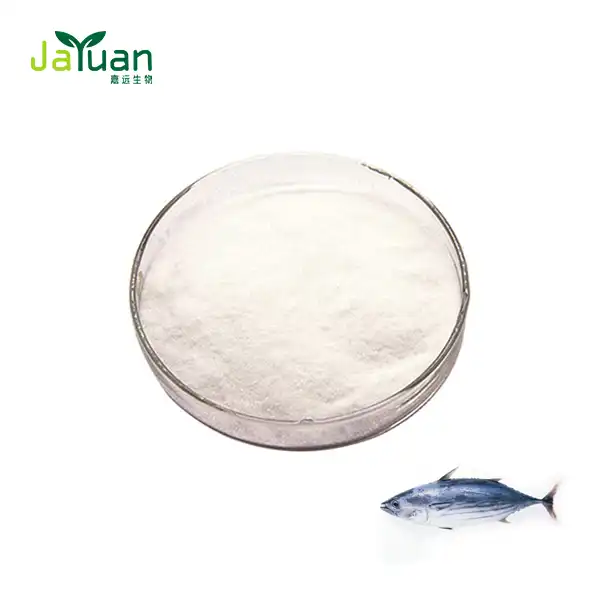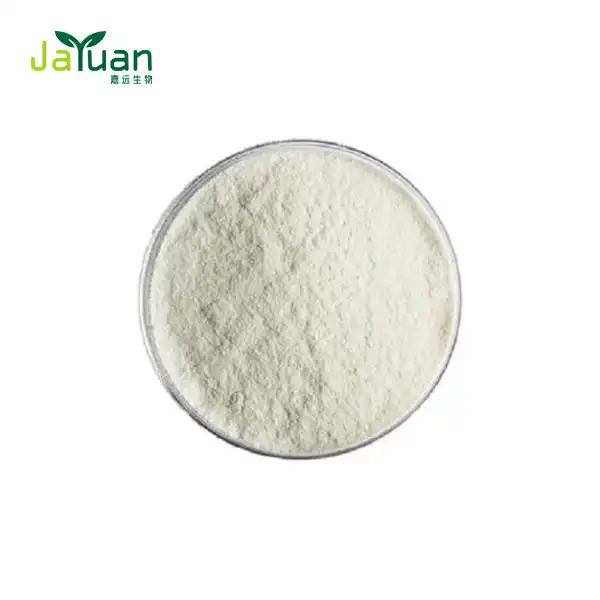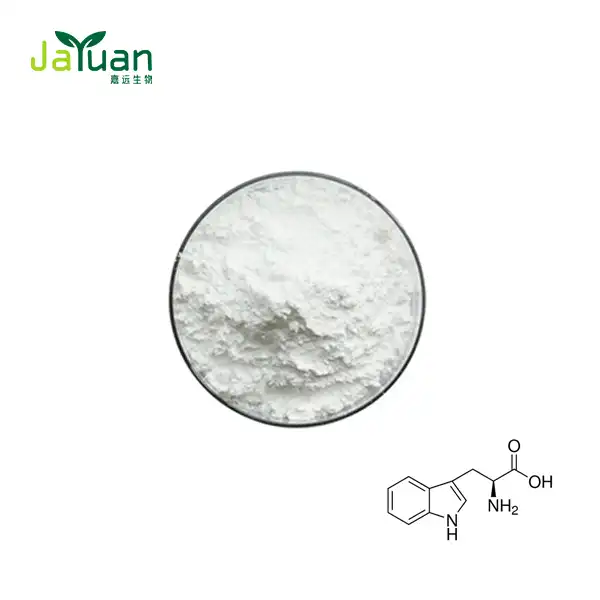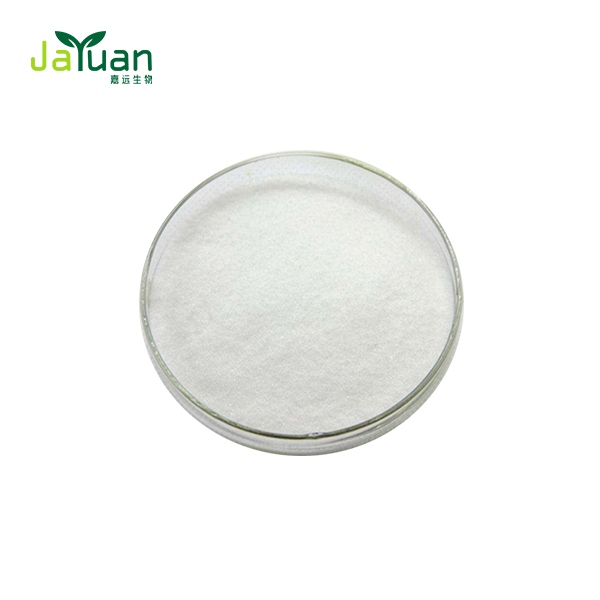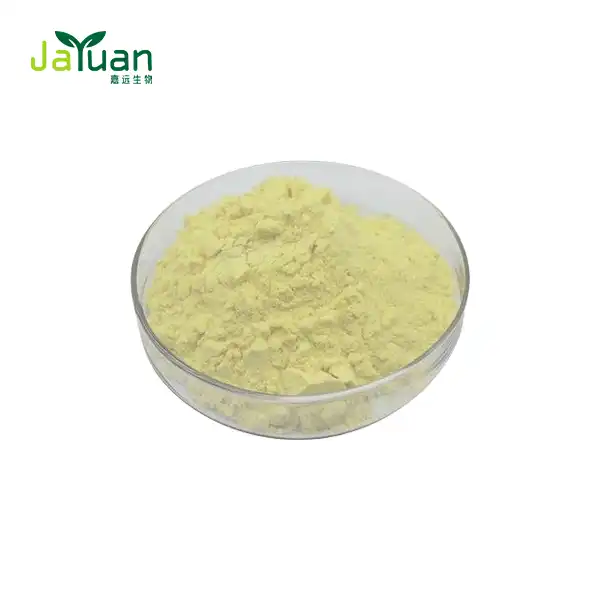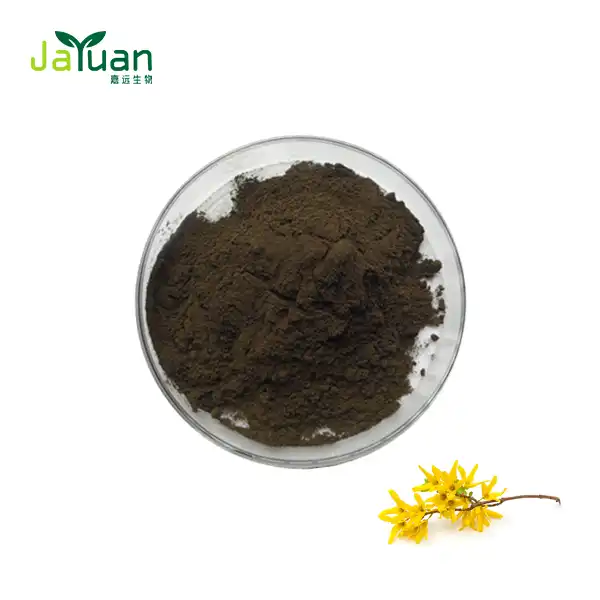What are the benefits of oolong tea extract?
Oolong tea extract, derived from the partially oxidized leaves of the Camellia sinensis plant, has gained widespread popularity in recent years due to its promising range of health benefits. This unique tea sits between green and black tea in terms of oxidation, resulting in a distinctive profile of active compounds, including polyphenols, catechins, theaflavins, and caffeine. These bioactive elements are believed to play a role in supporting metabolic function, enhancing cardiovascular health, and providing antioxidant protection against oxidative stress. In this article, we’ll delve into the potential advantages of incorporating it into your daily wellness regimen, with a focus on its effects on metabolism, heart health, and overall vitality.
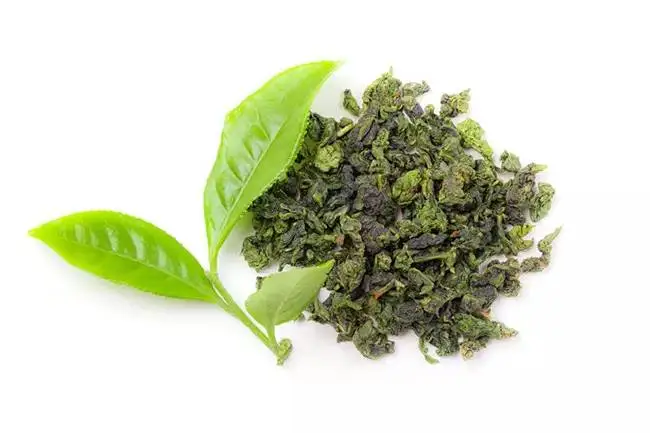
Plant Origin:Oolong tea
Appearance:Brown fine powder
Particle Size:500-3000 Mesh
Variety:Oolong Tea Extract
Application:Health Food, Beverage and Food
Certification: ISO9001/Kosher/Organic/halal/IFS/BRC/COSMOS
Grade:Food grade
Shipping: Express;Sea; Air
MOQ:1KG
Free sample:Available
Not for private person sale
Does it help with fat burning and metabolism?
One of the most talked-about benefits of it is its potential to support weight management and boost metabolism. Let's delve into the research behind these claims:
Thermogenic properties
It has been widely researched for its potential thermogenic effects, which refer to the body’s ability to generate heat through increased energy expenditure. This process can result in more calories being burned, even at rest. Key bioactive compounds in oolong tea, such as caffeine and polyphenols, are believed to stimulate thermogenesis by activating the sympathetic nervous system. These compounds may also increase fat oxidation, encouraging the body to utilize stored fat as an energy source. Clinical studies have shown that individuals who consume it may experience a modest increase in metabolic rate and enhanced fat-burning potential, supporting its role in weight management strategies.
Impact on lipid metabolism
It appears to exert beneficial effects on lipid metabolism, which encompasses the digestion, absorption, and utilization of fats. The polyphenolic compounds in oolong tea—especially catechins and theaflavins—have been studied for their ability to influence fat breakdown and inhibit fat accumulation. These compounds may modulate gene expression related to lipid metabolism, thereby reducing the formation of adipose tissue. Additionally, it has shown potential in lowering blood lipid levels, such as triglycerides and LDL cholesterol. These effects suggest that regular intake of it might not only assist in fat loss but also support cardiovascular health by promoting healthier lipid profiles.
enzyme activity
Another potential mechanism by which it supports fat burning is through its influence on digestive enzyme activity. Research indicates that certain compounds in oolong tea may inhibit enzymes such as pancreatic lipase and fatty acid synthase, which play key roles in fat digestion and storage. By slowing down or reducing the absorption of dietary fats, these inhibitory effects can contribute to lower fat accumulation in the body. Furthermore, enzyme modulation may affect how fats are transported and stored in adipose tissue, influencing overall body composition. This enzymatic interference, combined with the extract's thermogenic and metabolic benefits, positions it as a supportive aid in weight management.
benefits for heart health and cholesterol
Beyond its potential effects on metabolism, the product has been studied for its possible cardiovascular benefits. Let's examine how this extract might support heart health:
Cholesterol-lowering potential
Some research suggests that regular consumption of it may help maintain healthy cholesterol levels. The polyphenols in oolong tea might influence cholesterol absorption and metabolism, potentially supporting cardiovascular health.
Blood pressure regulation
It contains compounds that may help support healthy blood pressure levels. While more research is needed, some studies have shown promising results in this area.
Antioxidant protection for the cardiovascular system
The antioxidants found in it may help protect the cardiovascular system from oxidative stress, potentially supporting overall heart health.
Antioxidant power of oolong tea extract vs. green tea extract
Both oolong and green tea extracts are known for their antioxidant properties, but how do they compare? Let's explore the antioxidant potential of these two popular tea extracts:
Unique antioxidant profile
It contains a diverse array of antioxidants, including catechins, theaflavins, and thearubigins. This unique blend of compounds may offer a different antioxidant profile compared to green tea extract.
Comparative antioxidant capacity
While green tea extract is often praised for its high antioxidant content, it also demonstrates significant antioxidant capacity. Some studies suggest that oolong tea's partial oxidation process may result in the formation of unique antioxidant compounds not found in green tea.
Synergistic effects of oolong tea antioxidants
The combination of various antioxidants in it may work synergistically to provide comprehensive protection against oxidative stress. This synergy could potentially offer benefits that differ from those of green tea extract.
Conclusion
In conclusion, the product offers a range of potential benefits, from supporting metabolism and weight management to promoting heart health and providing powerful antioxidant protection. While more research is needed to fully understand its effects, incorporating oolong tea extract powder into your wellness routine may be a valuable addition for those seeking natural ways to support their health.
If you're interested in learning more about our high-quality products or other plant extracts, please don't hesitate to reach out to us at sales@jayuanbio.com and sales1@jayuanbio.com. Our team of experts is ready to assist you in finding the perfect solution for your needs.
References
1. Zhang, Y., et al. (2015). Oolong tea extract and its bioactive components in metabolic syndrome: A review. Critical Reviews in Food Science and Nutrition, 55(12), 1686-1705.
2. Rothenberg, D. O., et al. (2018). Oolong tea: A critical review of processing methods, chemical composition, health effects, and risk. Critical Reviews in Food Science and Nutrition, 58(17), 2957-2980.
3. Kurihara, H., et al. (2016). Anti-obesity effects of oolong tea and its components. International Journal of Molecular Sciences, 17(7), 1126.
4. Xu, Y., et al. (2017). Effect of oolong tea on blood pressure: A meta-analysis of randomized controlled trials. Evidence-Based Complementary and Alternative Medicine, 2017, 1-14.
5. Weerawatanakorn, M., et al. (2015). Chemistry and health beneficial effects of oolong tea and theasinensins. Food Science and Human Wellness, 4(4), 133-146.
6. Li, S., et al. (2013). Comparative analysis of antioxidant properties and bioactive compounds of various tea extracts. Journal of Food Science and Technology, 50(5), 879-885.

